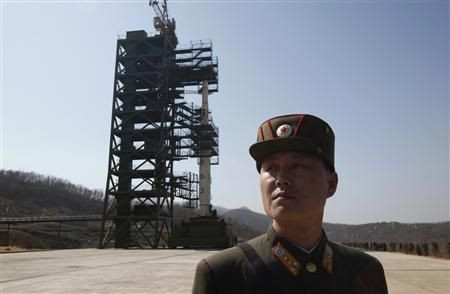North Korea Extends Rocket Launch Period To Dec. 29

North Korea has delayed the planned launch of its satellite by a week to Dec. 29, citing a "technical deficiency" in a rocket engine module, authorities said.
According to a report published by North Korea’s official news agency KCNA, the launch period of the second version of Kwangmyongsong-3 satellite has been extended as scientists discovered a technical fault in the first-stage control engine module of the rocket.
"(Engineers) found a technical deficiency in the first-stage control engine module of the rocket carrying the satellite and decided to extend the satellite launch period up to December 29," Reuters stated citing KCNA report.
North Korea had originally scheduled the launch in a 13-day period between Dec.10 and 22.
This is the fourth attempt by North Korea since 1998 to launch a satellite, which it describes as “a scientific and technological satellite” using its rocket launcher. Earlier, three attempts had failed to transport the satellite to its orbit and the last attempt on April 13, had seen the rocket flashing down after a few minutes of flight. However, Pyongyang claims that all its previous attempts were successful except the last attempt.
South Korea and the West believe that North Korea’s satellite is a clandestine attempt to test their ballistic missiles that could target the U.S. and its other western enemies, while Pyongyang claims its space program is employed for peaceful purposes and is a manifestation of its technical and scientific advancement. The technology used for the long-range rockets are similar to that of a ballistic missile.
The U.N and the U.S. have urged North Korea to stop the rocket launch and adhere with the U.N. Security Council resolutions that prohibit it from carrying out ballistic missile launches.
The snowy and frigid weather is also believed to be a hindrance for North Korea’s rocket launch as the region is facing early winter storms.
“Engineers can launch a rocket when it's snowing, but lightning, strong wind and freezing temperatures have the potential to stall liftoff,” the Associated Press reported quoting Lee Chang-jin, an aerospace professor at Seoul's Konkuk University.
© Copyright IBTimes 2024. All rights reserved.






















